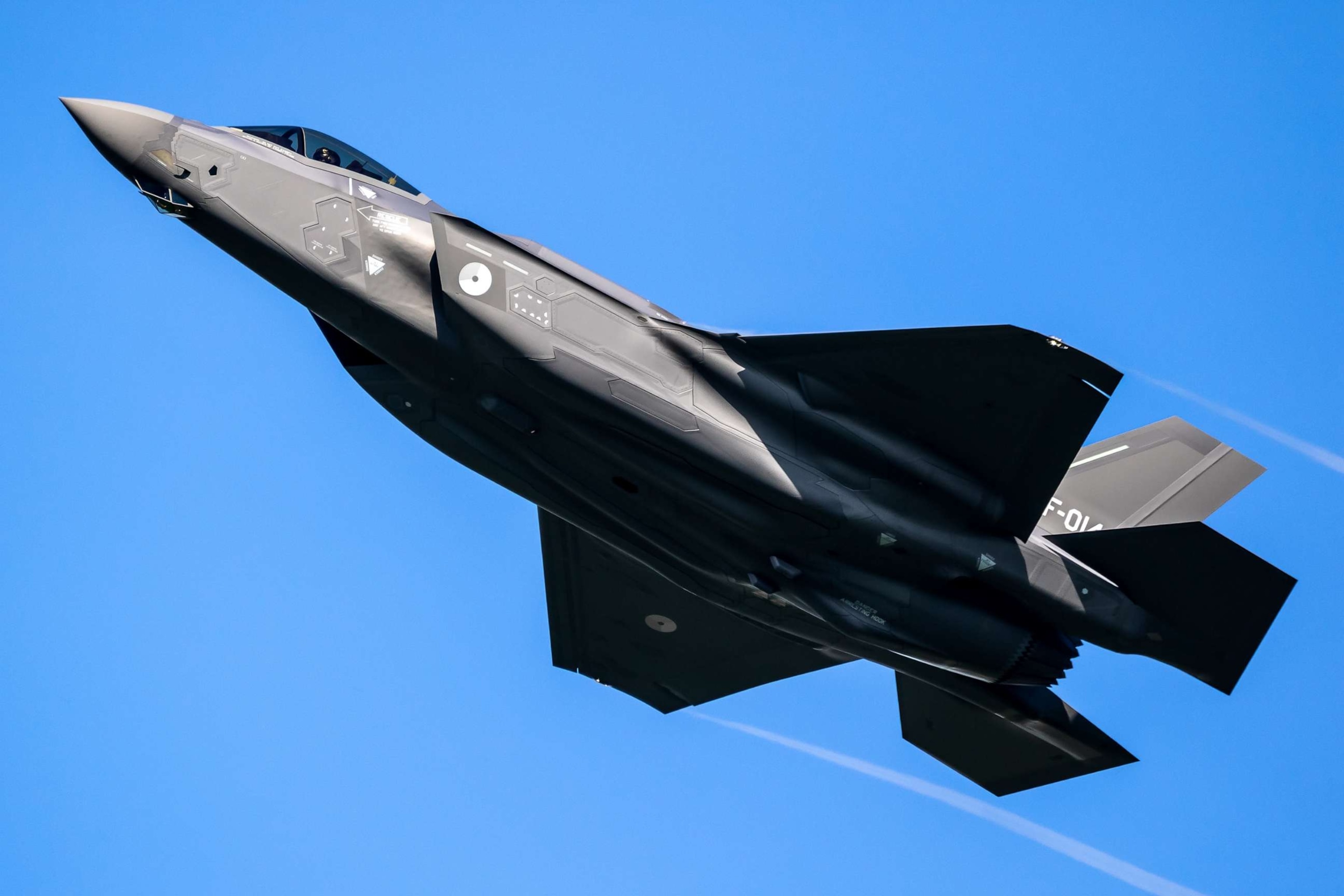New details in F-35 'mishap' as mystery remains about how jet was lost
The overall recovery process has begun, an official told ABC News.
The debris field found outside Charleston, South Carolina, on Monday is confirmed to be the remains of an F-35 that went missing on Sunday after a reported "mishap" or "malfunction" in which the jet's pilot ejected from the craft, according to a Marine Corps official.
The overall recovery process for the debris and the F-35B Lightning II has begun, the official told ABC News in a pair of statements.
The official would not specify what point in the recovery and investigation process the Marine Corps is in but said the process is ongoing.
It has not been publicly confirmed what led the pilot to eject or what brought the F-35 down. "It's very frustrating to not have any answers," Rep. Nancy Mace, R-S.C., told local affiliate WCIV on Monday.
The Marines say the cost of the loss of the highly sophisticated stealth plane is around $100 million.
A South Carolina law enforcement helicopter first located the aircraft and debris approximately 60 miles north of Charleston on Monday at 5 p.m. EDT, the official said.
Local law enforcement and the Marine Corps Emergency Reclamation Team "confirmed the debris to be an F-35B," and then "cordoned off and secured the area" after they identified the aircraft, the official added.
The pilot who ejected himself from the F-35 was discharged from the hospital on Monday afternoon, according to the official.
The pilot, whose name has not been released, had no major injuries and was in stable condition before being discharged, the official said. No civilian injuries have been reported from the incident.
The pilot ejected himself from the aircraft at altitude of approximately 1,000 feet "and one mile north of the Charleston International Airport," according to the official. The pilot then landed safely in a residential backyard.

The pilot had "experienced a malfunction and was forced to eject," the official said. The Marines Corp previously described the incident as a "mishap."
Officials said in a statement on Monday that "we are unable to provide additional details to preserve the integrity of the investigative process."
Mace, who has been critical of the Marines' handling of the incident so far, said on Monday, "Not to be able to provide answers to the community, you know, when mistakes happen -- we should be able to take responsibility for it and communicate and be transparent with the public."
ABC News contributor and retired Col. Steve Ganyard likewise has expressed some surprise at how this has unfolded.
"Even though it's a stealth aircraft, losing a stealth aircraft is hard to understand. ... It does seem ridiculous that an aircraft this expensive, this sophisticated, it could just vanish," he said.
The transponder that was on the F-35 would have helped locate it, but the Marine Corps hasn't said whether the device was functioning.
"If there was, say, an electrical failure on board where the transponder, the beams out to the radar, was no longer functioning -- then it becomes a stealth aircraft, essentially invisible to radar," Ganyard said.
ABC News' Adam Carlson, Nathan Luna and Cindy Smith contributed to this report.




